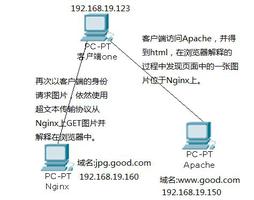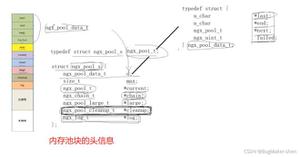Semaphore

public class Semaphore implements java.io.Serializable { private static final long serialVersionUID = -3222578661600680210L;
/** All mechanics via AbstractQueuedSynchronizer subclass */
private final Sync sync;
/**
* 继承AQS以实现信号量机制,使用AQS的state属性代表允许使用的信号量的数量,该Sync类有两个
* 派生类,其中一个是公平模式的,另一个是非公平模式的
*/
abstract static class Sync extends AbstractQueuedSynchronizer {
private static final long serialVersionUID = 1192457210091910933L;
Sync(int permits) {
setState(permits);
}
final int getPermits() {
return getState();
}
//非公平模式的获取信号量
final int nonfairTryAcquireShared(int acquires) {
for (;;) {
int available = getState();
int remaining = available - acquires;
if (remaining < 0 ||
compareAndSetState(available, remaining))
return remaining;
}
}
//释放信号量
protected final boolean tryReleaseShared(int releases) {
for (;;) {
int current = getState();
int next = current + releases;
if (next < current) // overflow
throw new Error("Maximum permit count exceeded");
if (compareAndSetState(current, next))
return true;
}
}
//减少信号量
final void reducePermits(int reductions) {
for (;;) {
int current = getState();
int next = current - reductions;
if (next > current) // underflow
throw new Error("Permit count underflow");
if (compareAndSetState(current, next))
return;
}
}
清空所有信号量
final int drainPermits() {
for (;;) {
int current = getState();
if (current == 0 || compareAndSetState(current, 0))
return current;
}
}
}
}
public class Semaphore implements java.io.Serializable {/**
* 非公平模式
*/
static final class NonfairSync extends Sync {
private static final long serialVersionUID = -2694183684443567898L;
NonfairSync(int permits) {
super(permits);
}
protected int tryAcquireShared(int acquires) {
return nonfairTryAcquireShared(acquires);
}
}
/**
* 公平模式
*/
static final class FairSync extends Sync {
private static final long serialVersionUID = 2014338818796000944L;
FairSync(int permits) {
super(permits);
}
protected int tryAcquireShared(int acquires) {
for (;;) {
//公平模式下,先判断是否有前驱结点
if (hasQueuedPredecessors())
return -1;
int available = getState();
int remaining = available - acquires;
if (remaining < 0 ||
compareAndSetState(available, remaining))
return remaining;
}
}
}
}
public class Semaphore implements java.io.Serializable { //未指定模式,默认生产非公平模式的信号量工具
public Semaphore(int permits) {
sync = new NonfairSync(permits);
}
//指定模式,生产公平或非公平模式的信号量工具
public Semaphore(int permits, boolean fair) {
sync = fair ? new FairSync(permits) : new NonfairSync(permits);
}
//使用可中断的方式获取信号量,tryAcquireShared->doAcquireSharedInterruptibly
public void acquire() throws InterruptedException {
sync.acquireSharedInterruptibly(1);
}
//发起可中断的获取信号量,指定获取信号量的数量
public void acquire(int permits) throws InterruptedException {
if (permits < 0) throw new IllegalArgumentException();
sync.acquireSharedInterruptibly(permits);
}
//使用不可中断的方式获取信号量,tryAcquireShared->doAcquireShared
public void acquireUninterruptibly() {
sync.acquireShared(1);
}
//发起不可中的的获取信号量,指定获取信号量的数量
public void acquireUninterruptibly(int permits) {
if (permits < 0) throw new IllegalArgumentException();
sync.acquireShared(permits);
}
//使用非公平模式获取信号量,默认获取一个信号量
public boolean tryAcquire() {
return sync.nonfairTryAcquireShared(1) >= 0;
}
//使用非公平模式获取信号量,指定获取信号量的数量
public boolean tryAcquire(int permits) {
if (permits < 0) throw new IllegalArgumentException();
return sync.nonfairTryAcquireShared(permits) >= 0;
}
//使用超时的模式获取信号量,默认获取一个信号量
public boolean tryAcquire(long timeout, TimeUnit unit)
throws InterruptedException {
return sync.tryAcquireSharedNanos(1, unit.toNanos(timeout));
}
//使用超时的模式获取信号量,指定获取信号量的数量
public boolean tryAcquire(int permits, long timeout, TimeUnit unit)
throws InterruptedException {
if (permits < 0) throw new IllegalArgumentException();
return sync.tryAcquireSharedNanos(permits, unit.toNanos(timeout));
}
//释放信号量
public void release() {
sync.releaseShared(1);
}
}
以上是 Semaphore 的全部内容, 来源链接: utcz.com/z/511383.html









